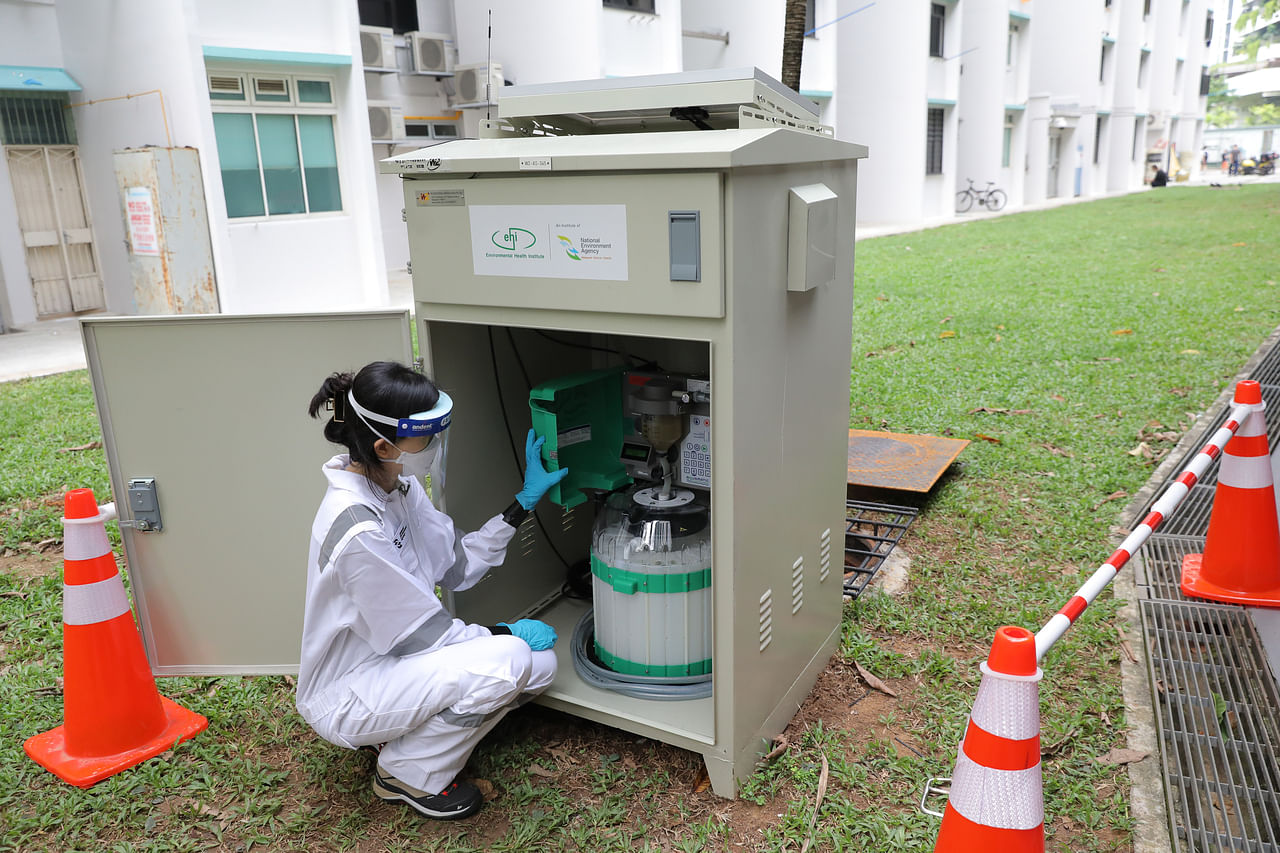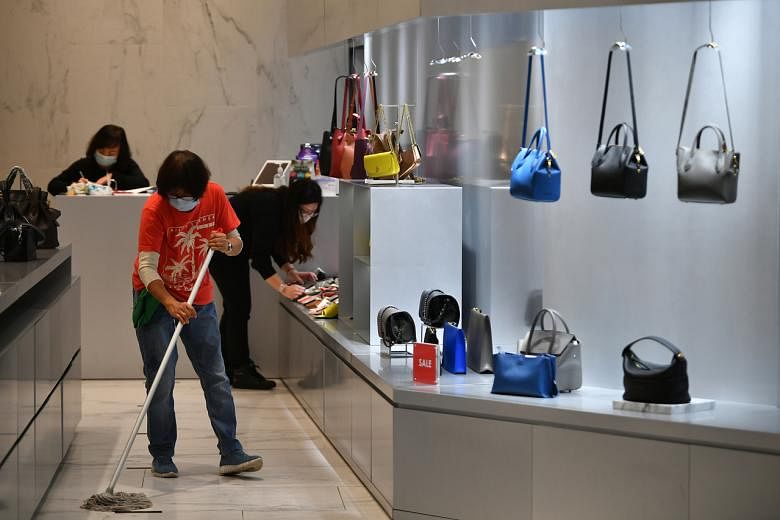SINGAPORE - An enhanced sanitation regime introduced last year will be expanded to about 2,700 more premises, including eldercare, social service and school facilities, as well as foodcourts, canteens, and large shopping malls.
The regime, which mandates routine disinfection among other stepped-up cleanliness and sanitation standards, will apply to places such as private and specialised schools, youth homes and senior activity centres from April 1.
Shopping malls are to adopt the regime from Aug 1 this year, and student care centres and other schools such as madrasahs from Oct 1.
The first round of the programme had seen it rolled out to about 3,700 premises here, including coffee shops, pre-schools and schools.
Senior Minister of State for Sustainability and the Environment Amy Khor gave this update on Monday (March 7) during the debate on her ministry's budget.
The main requirements under the programme include specifying and following daily cleaning and disinfection frequencies for toilets, lifts, bin centres and high-touch surfaces at each place.
The premises also need to be thoroughly cleaned at least twice a year, including areas that are not easily accessible, and are not covered by routine cleaning.
Other basic requirements include having a pest management plan and sufficient equipment and cleaning agents.
"Premises managers are also sensitised to their responsibility to prevent outbreaks of infectious diseases like gastroenteritis within their premises," said Dr Khor.
Premises managers must also appoint staff to be environmental control coordinators or officers, to help with developing, reviewing and monitoring the stepped-up cleanliness at the places. Both appointed coordinators and officers have to attend training to prepare for the programme.
More than 3,600 environmental control coordinators have been trained to date, with the aim to train 2,700 more coordinators and officers this year, said Dr Khor.
With the extension of the environmental sanitation regime, there will be an increase in demand for cleaning services and manpower. To cope with the demand, NEA is working with the cleaning industry to attract more locals to join the environmental services industry through various training programmes.
The agency has also been encouraging cleaning companies to adopt more technology.
On Monday, Dr Khor also gave the House an update on NEA's wastewater surveillance programme, which is one strategy being used to monitor population infection rates during the Covid-19 pandemic.
Wastewater surveillance works by picking up viral materials that are shed in stool and other bodily discharges such as phlegm.
As at February this year, NEA has been conducting wastewater surveillance at about 440 sites to help to track Covid-19 infection rates in the country, she said.
The surveillance programme started in May 2020, with just eight sites.
Now, about 150 sites are in residential areas and town centres, while the rest of the sites are in workers' dormitories, student hostels, and nursing homes.

Dr Khor said wastewater surveillance continues to be an important tool even as the country transits to an endemic state.
"The focus of wastewater testing has shifted from early case detection to providing situational awareness... It provides objective information on whether infections among the population are increasing or decreasing, independent of the population's health-seeking behaviour and prevailing clinical test protocols," she said.
NEA added: "An increasing viral concentration trend can alert us to a potential increase in infections, while a decrease could suggest that the intervention measures put in place are working."
When the viral load is high enough, wastewater testing can also detect Covid-19 variants.
NEA said the surveillance system can also be used to monitor other infectious disease threats, such as antibiotic-resistant bacteria.


